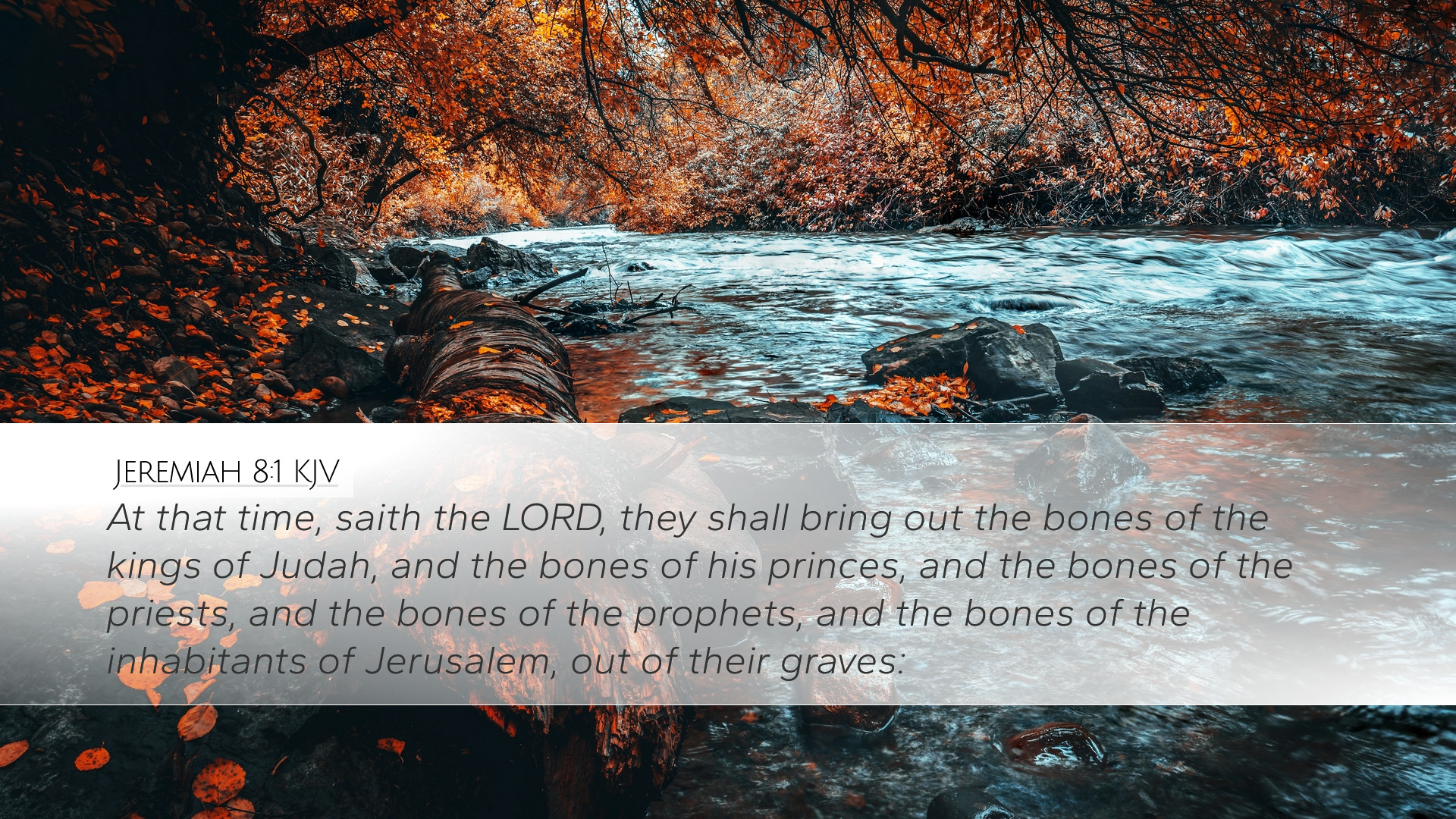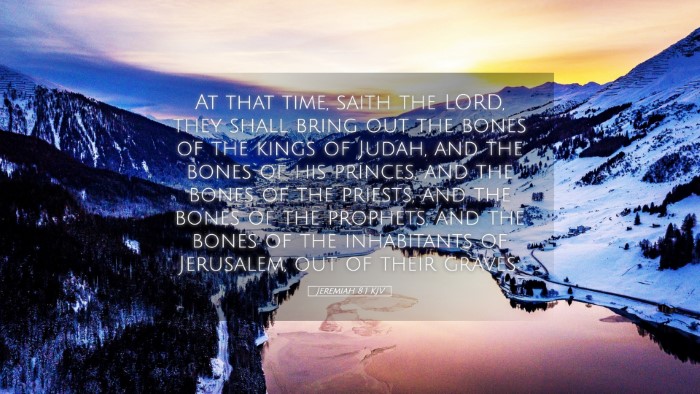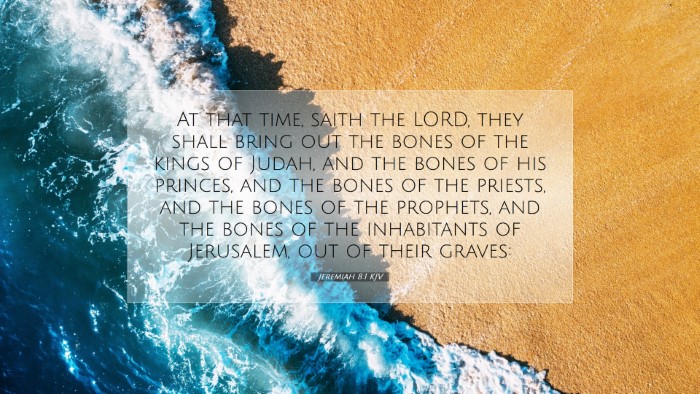Commentary on Jeremiah 8:1
Verse: "At that time, saith the Lord, they shall bring out the bones of the kings of Judah, and the bones of his princes, and the bones of the priests, and the bones of the prophets, and the bones of the inhabitants of Jerusalem, out of their graves."
Contextual Overview
Jeremiah 8:1 provides a sobering reflection on judgment, exile, and the ultimate fate of the people of Judah. This verse emerges in a larger context of prophetic lamentation over the spiritual and moral decay of Israel, where God communicates through Jeremiah the dire consequences of their unrepentance.
Insights from Public Domain Commentaries
Matthew Henry's Commentary
Matthew Henry emphasizes the imagery of death and decay presented in this verse. The act of removing bones from graves symbolizes a complete disassociation with the past, a severing of ties with their former life, and a public display of God’s judgment upon the nation.
- The Symbolism of Bones: Henry views the bones as representing the former glory of Judah, the kings, princes, and religious leaders who have met their demise due to divine judgment. Their bones being treated as refuse highlights not just physical death, but spiritual decay.
- Lesions of Judgment: This stripping of graves suggests that their fate is sealed; it also serves as a vivid proclamation that the idols they worshiped led them to death.
- Rejection of the Past: The mention of priests and prophets indicates a rejection of those who should have guided the people towards righteousness. Henry notes that this reflects the failure of leadership and the collective accountability of the nation.
Albert Barnes' Notes
Albert Barnes offers a more detailed exposition on the verse regarding the implications of this act performed by the Lord. He discusses the historical context and its implications for understanding divine retribution.
- Historical Context: Barnes points out that this act refers to a time of great calamity when the captives would be taken to Babylon and regular customs would be violated, including the respect for the dead.
- Divine Punishment: He interprets the removal of bones as God's way of illustrating the totality of their judgments—showing that even the dead are not spared from the consequences of sin as they shall be disregarded and their memories erased.
- Restoration and Hope: Despite the grimness of this prediction, Barnes implies a thread of hope, suggesting that eventual restoration is always a possibility, through repentance and return to God.
Adam Clarke's Commentary
Adam Clarke provides a theological reflection on the verse, viewing it as indicative of the moral state of Judah and the significance of acknowledging sin.
- Theological Implications: Clarke emphasizes that this passage should serve as a warning to nations and leaders today concerning the repercussions of turning away from divine laws.
- Moral Reflections: He notes that the bones symbolize sins that were not only temporal but have eternal consequences, echoing the seriousness of disobedience.
- Call for Repentance: Clarke sees the intention behind such dire predictions as a call for sinners to turn back to God before judgment is fully realized.
Theological Interpretation
The broader theological implications of Jeremiah 8:1 relate to themes of judgment, redemption, and the permanence of God's word. It serves as a reminder that God is sovereign over history and that all nations will face accountability for their actions.
- God's Sovereignty: The act of exposing the bones represents God’s authority in judgment; He holds His people accountable.
- Historical Lessons: The fate of Judah offers a timeless lesson for current and future generations about the consequences of turning away from God.
- Ultimate Redemption: Even in these severe warnings, there remains the prophetic promise of hope that arises from sincere repentance and renewed faithfulness to God.
Concluding Thoughts
Jeremiah 8:1 serves as a stark reminder of the consequences of sin and the necessity for nations and individuals alike to examine their practices against the divine standards set forth in Scripture. As pastors, students, and theologians engage with this text, it prompts critical reflection on both personal and corporate spirituality.


